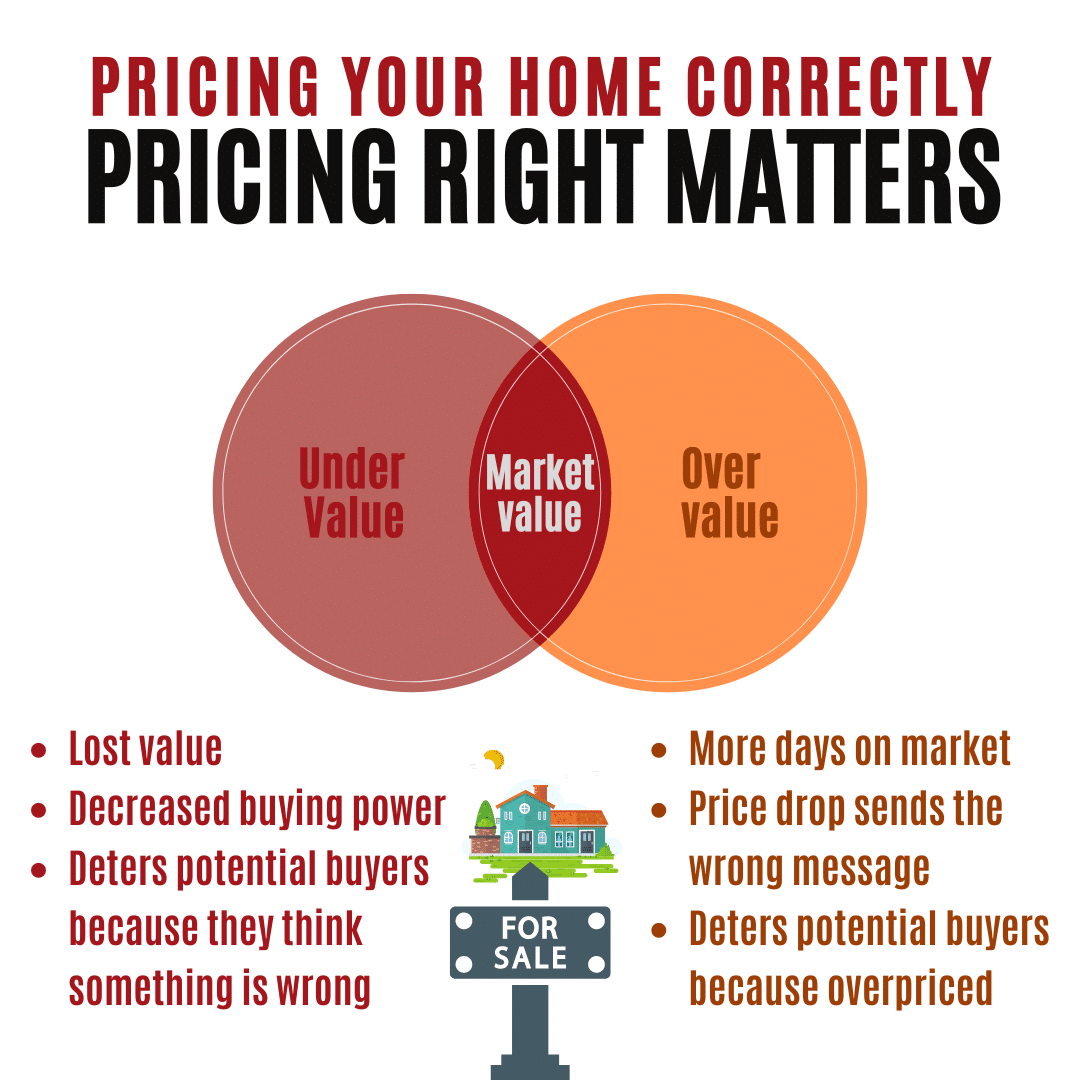Selling a home can be a stressful process, especially when you’re not getting the traction you hoped for. Maybe you’ve listed your house, done all the necessary cleaning, staged it to perfection, and even held a few open houses, but the offers just aren’t rolling in—or worse, you’re not getting any offers at all. If you’re in a situation where a quick sale is crucial, whether due to a move or financial reasons, this can be incredibly frustrating. So, what’s holding back potential buyers? More often than not, the issue could be your listing price. Let’s take a closer look at how pricing might be the roadblock to sealing the deal.

Are You Getting Any Offers?
One of the first signs that your home might be overpriced is a lack of offers. But even if you are getting some, take a close look at the numbers. Are the offers significantly lower than your asking price? It’s normal for buyers to submit ‘lowball’ bids as a way to start negotiations, especially in a competitive market. However, if you’re consistently seeing offers that fall well below your listed price, it could be a sign that your home is priced too high for the market. This doesn’t mean your home isn’t worth the amount you’ve listed it for, but the market may not be ready to meet your expectations.
Who Set The Price For Your Home?
Did you set the starting price for your home, or did you rely on the help of a professional real estate agent or sales team? If you are trying to sell your home without expert guidance, it is possible that you priced your house above its actual value. Remember that a variety of factors, from the condition of your home to current interest rates, will help to determine your home’s value. It is best to rely on the guidance of an experienced real estate agent to set your price.
What Do Local Sales Trends Look Like?
It’s essential to consider the broader market trends in your area. Are houses in your neighborhood flying off the market, or are they lingering for months without any movement? What’s the price range of recently sold homes in your area? If your home is priced significantly higher than similar properties in your neighborhood, this could explain why you’re struggling to attract buyers.
Take some time to research the local market. Look at how many homes are currently for sale, how long they’ve been on the market, and at what price point they’re selling. You can also ask your real estate agent for a comparative market analysis (CMA), which provides data on similar homes in your area and their sale prices. If you find that your price is out of sync with local trends, adjusting it might be necessary.
Should You Reduce the Price? Be Careful
Lowering your asking price can be a useful strategy, but it’s important to approach it with caution. A drastic price drop can sometimes scare off potential buyers. When people see a significant reduction, they may start to wonder if something is wrong with the house. Are there hidden problems, or does the home require costly repairs? Even if the house is in perfect condition, a sudden price reduction can raise red flags.
If you do need to reduce your price, try to do it incrementally. Smaller, strategic adjustments tend to have a more positive impact than one big cut. Work with your real estate agent to determine a new price point that aligns with current market trends and still appeals to buyers. Remember, the goal is to make your home competitive without devaluing it in the eyes of potential buyers.
If you are considering selling your home, be sure to contact us at (850) 407-2024 or email us at bryce@pelicanbuyshomes.com so we can provide you with a Fair Cash Offer on your Nationwide house.
Want To Get A Cash Offer On Your Nationwide house?
Please fill out the quick form below, and we will be in touch with you shortly!
"*" indicates required fields



